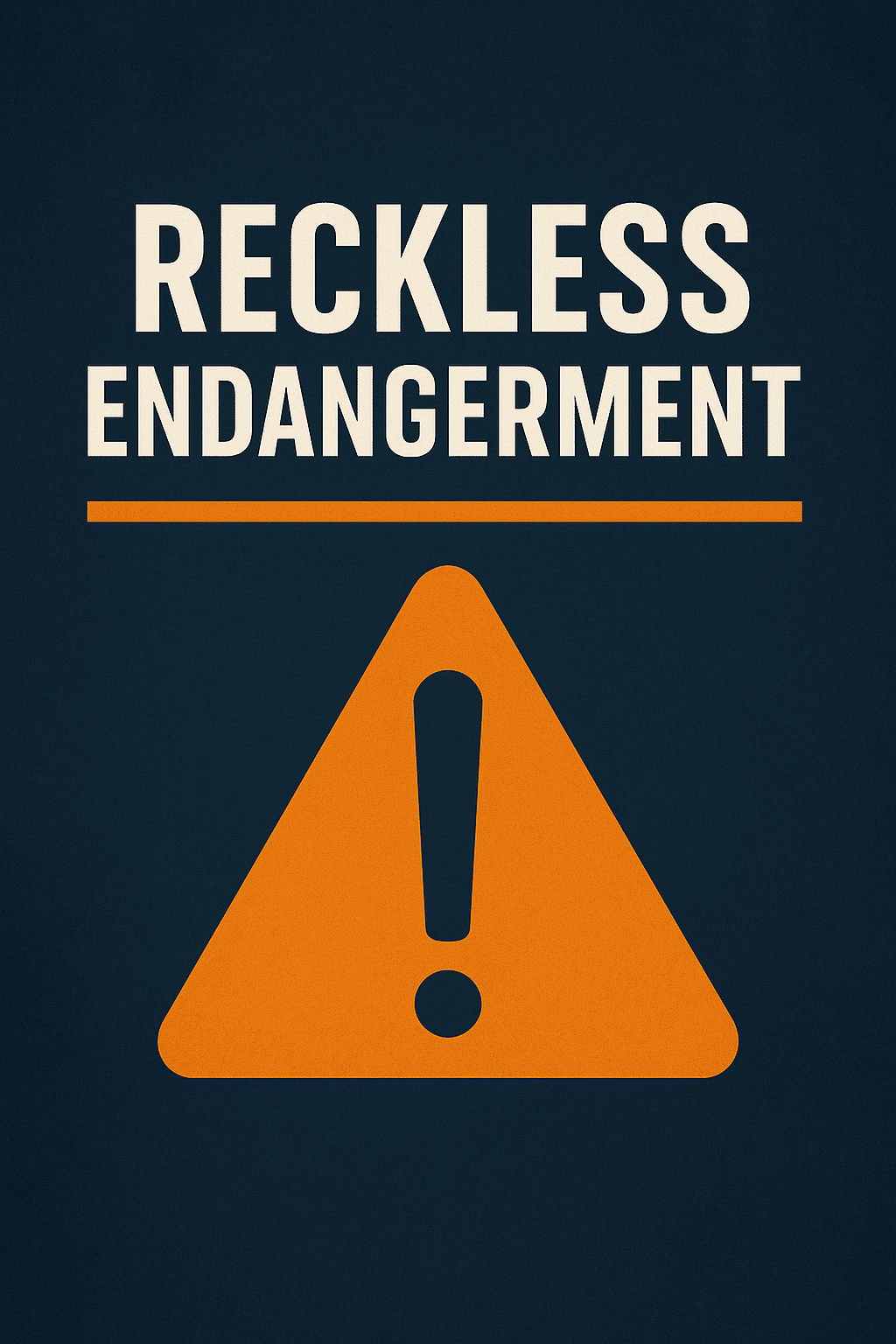
Reckless endangerment is a serious criminal offense in Maryland that often catches people off guard. You don’t have to hurt someone—or even intend to—for the state to charge you with reckless endangerment. If prosecutors believe your actions created a substantial risk of serious injury or death, you could face jail time, fines, and a permanent criminal record.
In this post, we’ll break down what reckless endangerment means under Maryland law, the penalties you could face, common examples of reckless behavior, and possible defenses. If you’ve been charged, speaking to a criminal defense lawyer immediately can make all the difference.
What Is Reckless Endangerment?
Under Maryland Criminal Law § 3-204, reckless endangerment occurs when someone:
“Recklessly engages in conduct that creates a substantial risk of death or serious physical injury to another.”
This law applies even if no one was actually hurt. The focus is on the risk created—not the result.
To convict someone of reckless endangerment, prosecutors must prove:
- The conduct was reckless (more than careless or negligent),
- It created a substantial risk,
- Of death or serious physical injury,
- And the defendant was aware (or should have been aware) of the risk.
Reckless Endangerment, by definition in Maryland, does not involve the use of a motor vehicle.
Examples of Reckless Endangerment in Maryland
Reckless endangerment charges come up in a wide variety of situations, including:
- Discharging a firearm in a public area, especially near other people.
- Leaving a child unattended in a car during extreme temperatures.
- Throwing objects off an overpass onto a busy highway.
- Handling dangerous animals in a way that puts others at risk.
While these cases can seem very different, they all involve actions that show a disregard for human life or safety.
Penalties for Reckless Endangerment
In Maryland, reckless endangerment is classified as a misdemeanor, but don’t let that label fool you—the consequences can be severe:
- Up to 5 years in jail
- A fine of up to $5,000
- Permanent criminal record
- Possible loss of firearm rights, professional licenses, or immigration consequences
If a firearm is involved or the behavior takes place near vulnerable individuals like children or the elderly, prosecutors may pursue additional charges or enhanced sentencing.
How Prosecutors Prove Reckless Conduct
Recklessness is a subjective standard, but the court looks at what a “reasonable person” would do in the same situation. The prosecution doesn’t need to prove that you intended to cause harm—only that you acted in a way that you knew (or should have known) was dangerous.
For example, pointing a loaded gun at someone—even as a “joke”—can be charged as reckless endangerment. You didn’t intend to shoot, but the risk was obvious and substantial.
Defenses to Reckless Endangerment Charges
Several defenses can be raised against a reckless endangerment charge, depending on the facts of your case:
- Lack of risk: If your actions didn’t actually create a substantial risk of death or serious injury, the charge may not hold.
- Accident or mistake: If the conduct was truly accidental and not reckless, this may be a defense.
- Self-defense: In some cases, actions taken in self-defense—even if risky—may be justified under Maryland law.
- Lack of evidence: Prosecutors must prove every element beyond a reasonable doubt. If there are gaps in the evidence, the charge could be dismissed or reduced.
Charged with Reckless Endangerment? Get Legal Help Now
If you’re facing a reckless endangerment charge in Charles County, St. Mary’s County, Calvert County, or Prince George’s County, don’t wait to protect your future. A conviction can affect your job, family, and freedom for years to come.
At Southern Maryland Criminal Defense, we understand how prosecutors build these cases—and how to fight back. Whether it’s negotiating for a dismissal or defending you at trial, we’re here to help.
👉 Schedule a consultation today to discuss your options with an experienced Maryland criminal defense lawyer.
Key Takeaways:
- Reckless endangerment does not require injury—just a substantial risk of serious harm.
- The offense is a misdemeanor but can still carry up to 5 years in jail.
- Defenses include lack of risk, accident, or self-defense.
- Local experience matters—especially in the Southern Maryland court systems.
